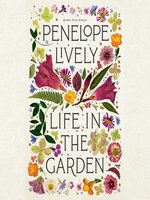From the cover
Reality and Metaphor
On the 31st of May 1920, Virginia Woolf went gardening. Here's what she wrote in her diary: "The first pure joy of the garden . . . weeding all day to finish the beds in a queer sort of enthusiasm which made me say this is happiness. Gladioli standing in troops; the mock orange out. We were out till 9 at night, though the evening was cold. Both stiff and scratched all over today, with chocolate earth in our nails." This is the commentary of a practical, hands-on gardener, a view of the garden wonderfully different from the way in which gardens surface in her novels. But, before considering that, I want to look at where it was that she was gardening, and what that garden was like.
Virginia and Leonard Woolf bought Monk's House, at Rodmell, near Lewes, in July 1919, when she was thirty-seven. It was an old, weather-boarded house, disconcertingly austere by twenty-first-century standards-no electricity or running water, no bathroom, a privy in the garden, and only gradually did the Woolfs overcome these deficiencies. It had three-quarters of an acre of garden, and this, certainly for Leonard, seems to have been the prime attraction. It is clear that he was the gardener-in-chief, with Virginia as an interested accomplice and frequent assistant. There was already a fine orchard (apples, plums, pears, cherries), and as time went on Leonard laid out the hard landscaping-the creation of a garden composed of discrete areas, or rooms, united by brick-paved paths, that is the basis of the garden as it is today, now in the care of the National Trust.
They evidently flung themselves at the garden with immediate enthusiasm. In September 1919 Virginia wrote: "We have been planting tiny grains of seed in the front bed, in the pious or religious belief that they will resurrect next spring as Clarkia, Calceolaria, Campanula, Larkspur and Scabious." A list of annuals-a nice mix except for the calceolaria, which fills me with horror, a nasty bulbous yellow spotty thing which would have offended the palette of otherwise pinks and blues. I do hope it failed to resurrect. But that was evidently, for Leonard, the start of a tradition of growing from seed; later, he had greenhouses.
Caroline Zoob and her husband, Jonathan, were tenants of the National Trust at Monk's House for ten years, and her fine book-Virginia Woolf's Garden-is testimony to their talented management of the garden. The brief was to preserve as much as possible of Leonard's original layout and, indeed, some of the Woolf planting preferences. Leonard and Virginia had a taste for strong colors. "Our garden is a perfect variegated chintz: asters, plumasters, zinnias, geums, nasturtiums and so on: all bright, cut from coloured papers, stiff, upstanding as flowers should be," Virginia wrote in a letter. That description has me a bit doubtful, and the sumptuous photographs in Caroline Zoob's book show planting schemes and palettes rather more subtle and in tune with contemporary taste, though, loyally, zinnias were still grown from seed on their watch, one of Leonard's favorites. Hardly seen elsewhere, nowadays, out of fashion, like the red-hot pokers-kniphofia-that he had (and which flare up in To the Lighthouse, as we shall see): ". . . the garden is full of zinnias. The zinnias are full of slugs. L goes out at night with a lantern and collects snails, which I hear him cracking . . ." Virginia may have left pest control to him, but she certainly got weeding: "Very soon, in any occupation, one makes a game of it. I mean . . . that one gives characters to weeds. The worst is the fine grass which has to be sifted out conscientiously. I like...






